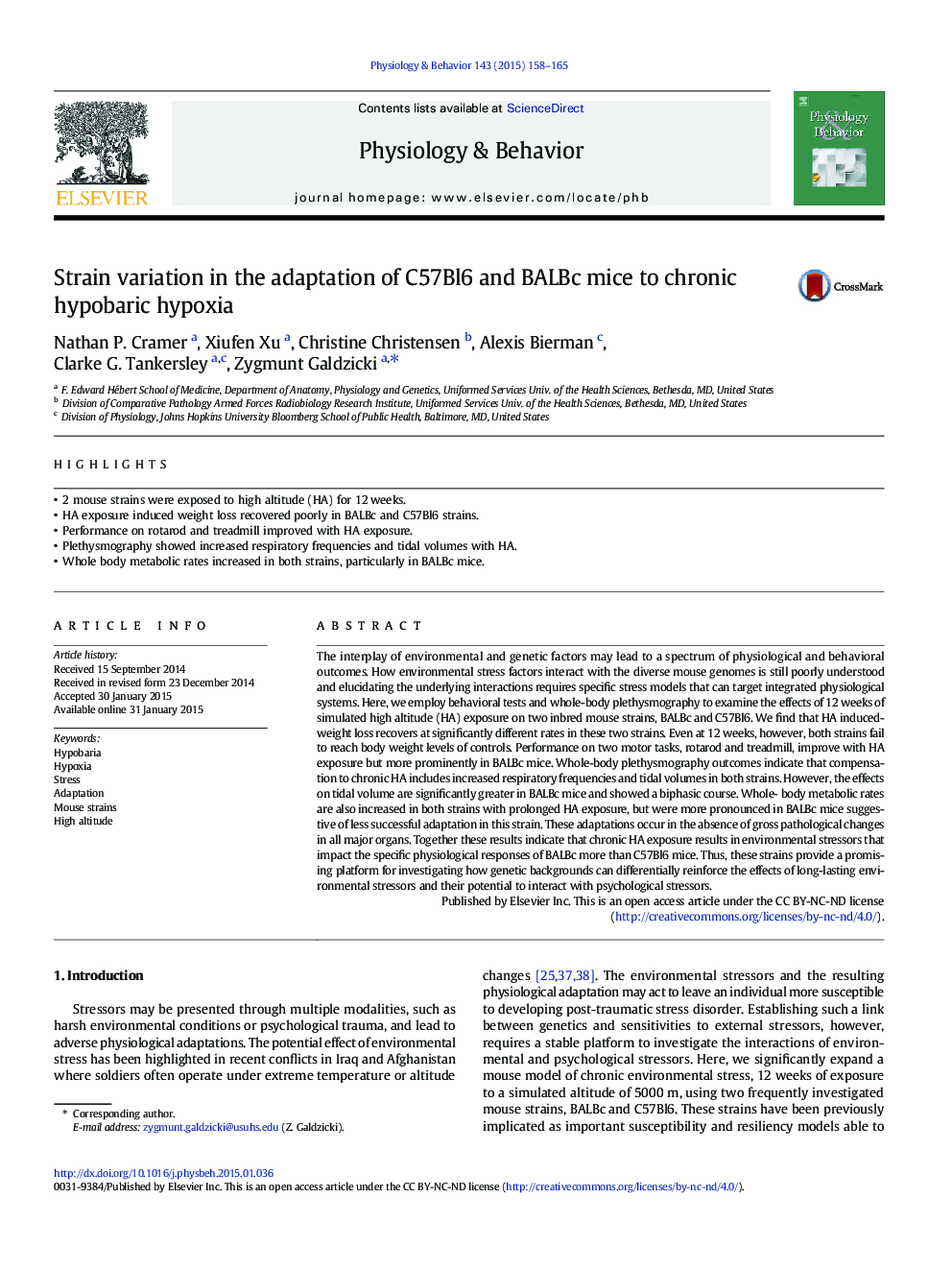| Article ID | Journal | Published Year | Pages | File Type |
|---|---|---|---|---|
| 5923718 | Physiology & Behavior | 2015 | 8 Pages |
â¢2 mouse strains were exposed to high altitude (HA) for 12 weeks.â¢HA exposure induced weight loss recovered poorly in BALBc and C57Bl6 strains.â¢Performance on rotarod and treadmill improved with HA exposure.â¢Plethysmography showed increased respiratory frequencies and tidal volumes with HA.â¢Whole body metabolic rates increased in both strains, particularly in BALBc mice.
The interplay of environmental and genetic factors may lead to a spectrum of physiological and behavioral outcomes. How environmental stress factors interact with the diverse mouse genomes is still poorly understood and elucidating the underlying interactions requires specific stress models that can target integrated physiological systems. Here, we employ behavioral tests and whole-body plethysmography to examine the effects of 12Â weeks of simulated high altitude (HA) exposure on two inbred mouse strains, BALBc and C57Bl6. We find that HA induced- weight loss recovers at significantly different rates in these two strains. Even at 12Â weeks, however, both strains fail to reach body weight levels of controls. Performance on two motor tasks, rotarod and treadmill, improve with HA exposure but more prominently in BALBc mice. Whole-body plethysmography outcomes indicate that compensation to chronic HA includes increased respiratory frequencies and tidal volumes in both strains. However, the effects on tidal volume are significantly greater in BALBc mice and showed a biphasic course. Whole- body metabolic rates are also increased in both strains with prolonged HA exposure, but were more pronounced in BALBc mice suggestive of less successful adaptation in this strain. These adaptations occur in the absence of gross pathological changes in all major organs. Together these results indicate that chronic HA exposure results in environmental stressors that impact the specific physiological responses of BALBc more than C57Bl6 mice. Thus, these strains provide a promising platform for investigating how genetic backgrounds can differentially reinforce the effects of long-lasting environmental stressors and their potential to interact with psychological stressors.
